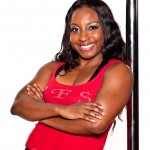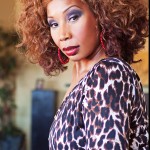By Ivy N. McQuain, NDG Contributing Writer

Being a business owner will always present challenges. But good business owners, regardless of color, should show the quality of their work, passion for doing what they do and be competitive. These challenges should never hinder the forward progress of a business owner. Unfortunately, in the African American community, business owners are often public enemy number one. For African American female entrepreneurs, the sword seems sharper and always aimed to kill.
How did we get here?
If the first image of an African American woman received by a potential client or business opportuni
ty is that of the mean-spirited likes of NeNe Leakes (Atlanta Housewives) or Tammy (Basketball Wives), then surely the deal would immediately be taken away. In movies, on television and even in the African American community, African American women are viewed negatively. When someone hears that “Sister so and so” got a new car, started a new job or, heaven forbids, starts her own business, immediately the thoughts of, “What did she do?” “Who is she doing?” and comments about her ability to maintain what she has fills the conversation at salons and through text messages.
Let’s look at some numbers. According to the Census Bureau, 42 million individuals in America are African American. Of that number, only 1.9 million own and operate businesses. The number of businesses owned by African American women is unofficial, but the reports suggest the numbers have grown considerably since 2002. So why is it difficult for African American women to build co-ops, work together and nurture the growth of each other’s businesses and entrepreneurial endeavors?
The question is why do African American women fail to “get along” in business, while other women in other ethnic groups thrive. The unstated, but clearly obvious answers include attitude, jealousy, pride and just the desire to get as much as possible out of everyone. In order to better understand the plight plaguing the African American women business community these women have been broken down into groups – the hater, the taker and the hustler.
Haters – Takers – Hustlers

Everyone has a hater, whether they know it or not. Unfortunately, the problem with haters in the African American female business community is the fact haters can literally destroy this small minority. This woman is always the first to tear down another African American entrepreneur. She rarely, if ever, has anything positive to say and can present a convincing argument on why she disapproves. She also attracts attention easily, and if she is savvy with social media, her hating is far reaching.
“Despite any issues I may have had with other African American women business owners I never take it to social media because once it’s there, it’s there,” said Kristi Jackson, founder of Women CEO.
Jackson acknowledged African American women have a need to “get it off their chest” by any means necessary. All too often it makes them look angry, unprofessional and a host of other negative images that cannot be erased from memory. It is always a challenge for African American women to get along, but when you add business into the mix the claws come out and everything flies from insults to lies.

Celebrity cake designer Porsha Kimble of Cake Diva in Grand Prairie believes African American women business owners cause more detriment to each other than to any other race. Kimble said she has experienced backlash from others when she declined to use their services or products.
“If I don’t have a need for your business or services don’t mean that I am not supporting you by telling others about you,” said Kimble. “Unfortunately, when I say no, the hating starts immediately and I get torn down.”
Kimble said she also experiences hating when she adds comments to her Facebook page about baking cakes for high-profile clients. After she shares the good news, she receives a barrage of emails or Facebook messages saying she no longer wants to deal with “regular” clients.
“I have even been told that I am too high when asked for a price and they don’t tell others about my business,” Kimble added.
Coach and business strategist Brandy Adamson believes a negative attitude, coupled with continual complaining is something no one wants to hear. She added anyone who is willing to start a business, African American or not, is a champion. Building a solid support system is more important than complaining – for the benefit of the community.

“It seems very hard to please African American women at times even when you are providing the best service as it relates to one-on-one relationships and regular business. Nothing ever seems good enough,” said Rashida Hobbs, owner of Poleiticians, a pole dancing fitness club.
Another type of business owner plaguing African American women is the taker. This woman only builds alliances to benefit her end game. She is quick to offer assistance, just to get a better understanding. Oftentimes she is more than willing to steal ideas from those who help her. No matter what discounts offered, she is determined to receive products or services for free or little to nothing. She complains and is willing to jeopardize anyone’s reputation just to get her way.
Adamson points out many African American women seem surprised when given price quotes regarding her services or advertising in ALIVE Magazine, her publication. She recalled all the times when she offered huge discounts just to get the client, only to receive complaints – not payments. She advises business owners who want to grow their business, do not settle for the client continuously seeking discounts.
“African American women, and usually women in general, fail to realize that they are in business to make money. PERIOD,” said Adamson. “No one has time the time to always offer discounts just to get business.”
For Cass Butler, owner of The Butler Enterprise, African Americans women business owners seem to always want to be on the

receiving end. She is saddened to see these business owners seeking an all or nothing approach to an opportunity to grow their business. Also, they seemingly refuse to help others gain customers.
“We are missing out on becoming a mega conglomerate as other ethnicities have become because we want everything for ourselves,” Butler said.
The final type of business owner hurting the African American women business community is the hustler. This woman is about getting what she can, by any means necessary. She loves networking opportunities, because she is always looking for an opportunity to get what she can. This business owner will always say what needs to be said to win the trust of others.
Adamson shared how business owners of other races have refused to work with her, because as she was told, of previous experiences with African American women. She believes the negative association regarding working with African America women stems from various issues, including being hustled.
“Unfortunately African American women, as a whole, allow past experiences to mold their future success and many times, lose out because of their unwillingness to take a chance on the unknown,” Adamson said.
While the hustler enjoys networking, they actually are not willing to assist others. Butler indicated she is always willing to share information regarding other African American women who own businesses. She has been hustled several times by business owners who disguised themselves as clients or business partners. However, they do not reciprocate. Hobbs said she has encountered several African American women who declined her services, and then opened their own business that closely resembled hers.
“While there are a few out there who just do not want to see another woman succeed it is not limited to the African American female in business,” Butler said. “We cannot make all the money and have all the customers, so why not push and support each other. There is plenty out there for everyone.”
Starting point for change
Fortunately, there is a silver lining for African American women business owners. Despite the negativity associated with African American women business owners those interviewed for this article believe there are ways to combat the negativity. Adamson said when African American women bring their talents to the table – success is a no-brainer.
“If we come together to mentor and educate future business owners, sharing with them,” Adamson said, “Then we could do much to change the environment.”
Butler believes leading by example is important to building strong networks. She admits not everyone wants to have a cooperative network but it is important to build one. A network of people, she said, that can be called on within the African American women business community within and outside of their industry is important for moral support and networking.
“If everyone has a circle, then we will eventually dispel the ‘we cannot work together’ myth,” Butler said.
Jackson works daily through the Women CEO Project to mentor and foster a community of women business owners who are able to cooperatively build sustainable networks in various industries. She started her company with the hopes of not only building bridges with African American women business owners but among all women.
Hobbs hopes the issues African American business owners face can be addressed through meetings and support groups and began the dialogue toward developing workable partnerships.




